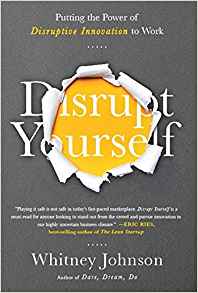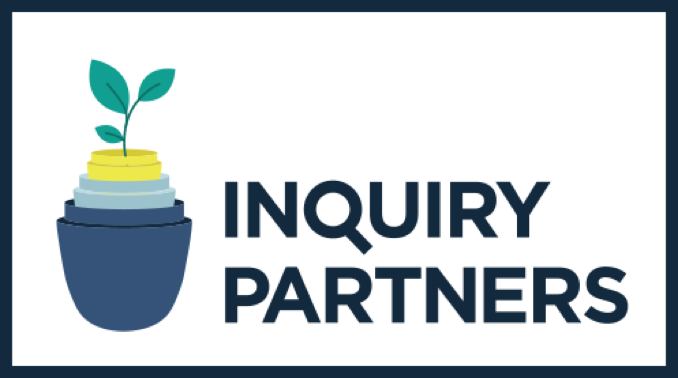Disrupt Yourself by Whitney Johnson
If you’ve been disrupted by forces external or are ready to disrupt your own internal forces, Johnson’s work will offer you solid theory, a straightforward framework, a short self-assessment, entertaining stories of others’ ahead of the trajectory, and the ability to extend this to your people. After all, development is all about disruption, we can’t grow if everything stays the same. Let’s disrupt ourselves!
You may not have heard of the traditional S-curve model of technology growth, theorized in the early 1900’s and most notably published in 1962, by Everett Rogers. But with this model, social scientists have explained the diffusion of innovations and ideas through social networks, and distinct types of technology “adopters” over time. After collecting cumulative data over time, scientists then determined “laws” for disruptive innovation, and categories to describe the rate at which these technology adopters accept a new information medium and with whom they share it with. The resulting findings and literature over the many decades since Rogers early publication, have inspired many popular applications and extensions of this theory you may have heard of. These include Malcolm Gladwell’s (2000) The Tipping Point, and more recently Whitney Johnson’s (2015) Disrupt Yourself. While most of these applications and extensions focus on the larger scale communication and adoption of disruptive technology, Johnson applies the theory and associated “laws” to the individual patterns of disruption and adoption of new learning. Sometimes we face circumstances that disrupt our patterns and force us to react to a new situation or context. Over the years of our working and relational lives, we are given the choice whether to adopt new disruptive learning or not. At other points, we know that we must be the tipping point for our own new learning. Whitney Johnson maps a way for us to take responsibility for our own personal disruption and adoption of new learning, the innovative ways of seeing our thinking, networks, motivation, and enjoyment.
This read is full of examples, research-based, but easy to digest. Even better, in the years since, Johnson has undertaken an informative and meaningful podcast (of the same name) interviewing successful people who have unpredictably, but purposefully disrupted themselves. She’s also just released a new book (2018) building on the individual principles of learning and disruption from the former book, applying them to helping those in your circle of direct influence to experience new learning from disruption, How to Build an A-team.







